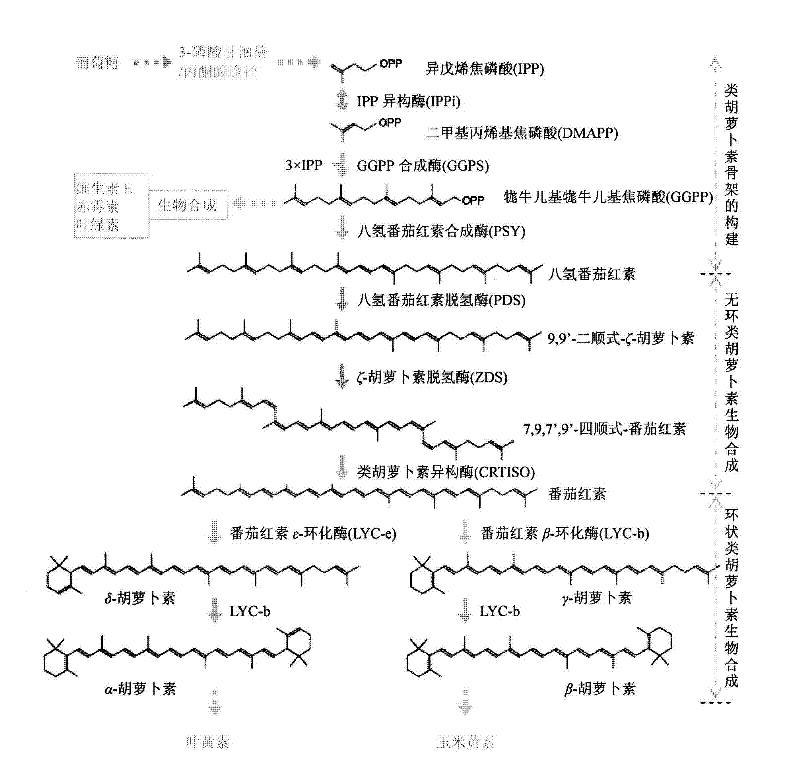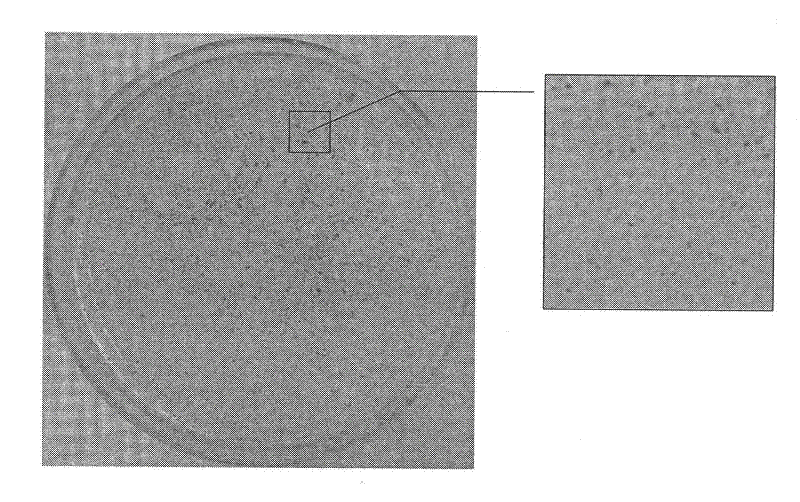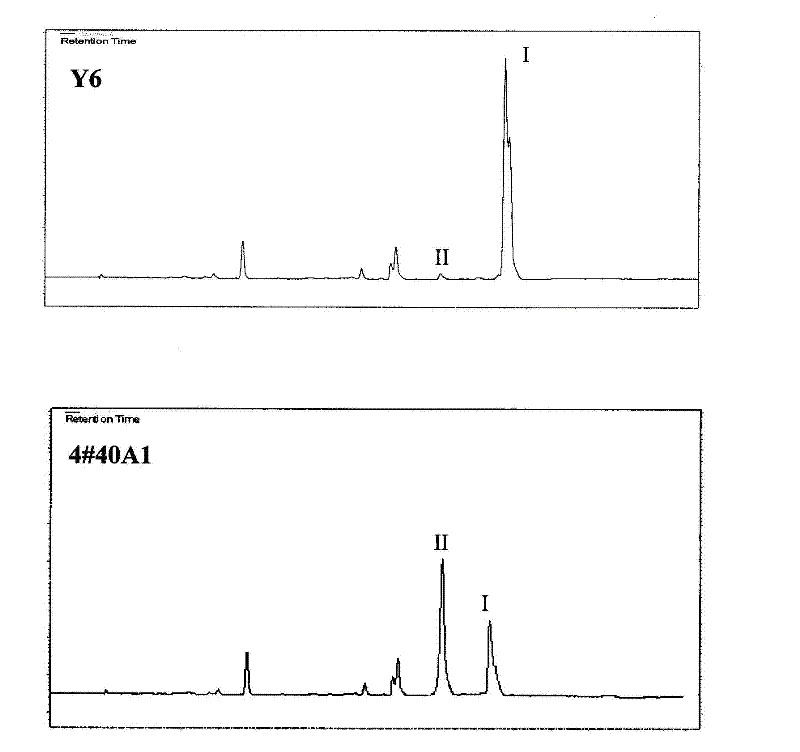Method for enabling Dunaliella to accumulate high-content lycopene
A technology of lycopene and Dunaliella, applied in the field of biosynthesis of lycopene, can solve problems such as difficulty in extraction, consumption of a lot of land resources, adverse effects of chemical additives on health, etc.
- Summary
- Abstract
- Description
- Claims
- Application Information
AI Technical Summary
Problems solved by technology
Method used
Image
Examples
Embodiment 1
[0039] Example 1, Construction of Dunaliella lycopene-β-cyclase gene knockout vector
[0040] Step 1, Extraction of Dunaliella Genomic DNA
[0041] Centrifuge at 5000r / min to collect DsMG liquid medium (Mu Chunlin, Chen Xiwen, Hou Zhaoli. Isolation and species identification of β-carotene Dunaliella in industrial production. Salt Industry and Chemical Industry, 2009, 38(4): 25-29) For Dunaliella cells, add 750 μL preparation solution (containing 2.5mL extract solution, 2.5mL nuclear lysate solution, 1mL 5% (w / v) sodium N-lauroyl sarcosinate for every 100mg cells, mix well, weigh 0.024g Sodium bisulfite, dissolved, mixed. The extract was 350mmol / L sorbitol, 100mmol / LTris (pH7.5), 5mmol / L EDTA. The nuclear lysate was 200mmol / L Tris HCl (pH7.5), 50mmol / L EDTA, 2.0mol / LNaCl, 2% CTAB), incubate at 55°C for 2h (invert and mix once every 15min), aliquot, 750μL per centrifuge tube; add 750μL chloroform / isoamyl alcohol (24:1) to each tube , invert and mix well, centrifuge at room te...
Embodiment 2
[0053] Example 2, Electrotransformation of lycB gene knockout vector pDs-GKO-cat and screening and identification of transformants
[0054] a. Cultivate Dunaliella cells to the logarithmic growth phase (1.0×10 6 / mL), centrifuge at 4000r / min for 5min at 4°C, and collect the cells;
[0055] b. Operation on ice, electric shock buffer (composed of: 0.28mol / L NaCl, 5mmol / L KCl, 25mmol / L CaCl 2 , the Hepes of 20mmol / L, the mannitol of 200mmol / L, the sorbitol of 200mmol / L, the Tween-20 of 0.05%, the glycerol of 0.4mol / L) suspension cell, wash 2 times;
[0056] c. Resuspended to a cell density of 1.0×10 7 / mL; Take 90-100 μL of the resuspended algae liquid, add the final concentration of 10 ng / μL carrier and 20 ng / μL protamine DNA, mix well, and ice-bath for 10 min;
[0057] d. 6kV / cm electric shock, ice bath for 10min, add 1mL DsMG, dark culture for 12h;
[0058] e. Light: dark = 14:10 culture, and finally plated on a solid plate containing 100 μg / mL chloramphenicol (instruction...
PUM
 Login to View More
Login to View More Abstract
Description
Claims
Application Information
 Login to View More
Login to View More - R&D
- Intellectual Property
- Life Sciences
- Materials
- Tech Scout
- Unparalleled Data Quality
- Higher Quality Content
- 60% Fewer Hallucinations
Browse by: Latest US Patents, China's latest patents, Technical Efficacy Thesaurus, Application Domain, Technology Topic, Popular Technical Reports.
© 2025 PatSnap. All rights reserved.Legal|Privacy policy|Modern Slavery Act Transparency Statement|Sitemap|About US| Contact US: help@patsnap.com



